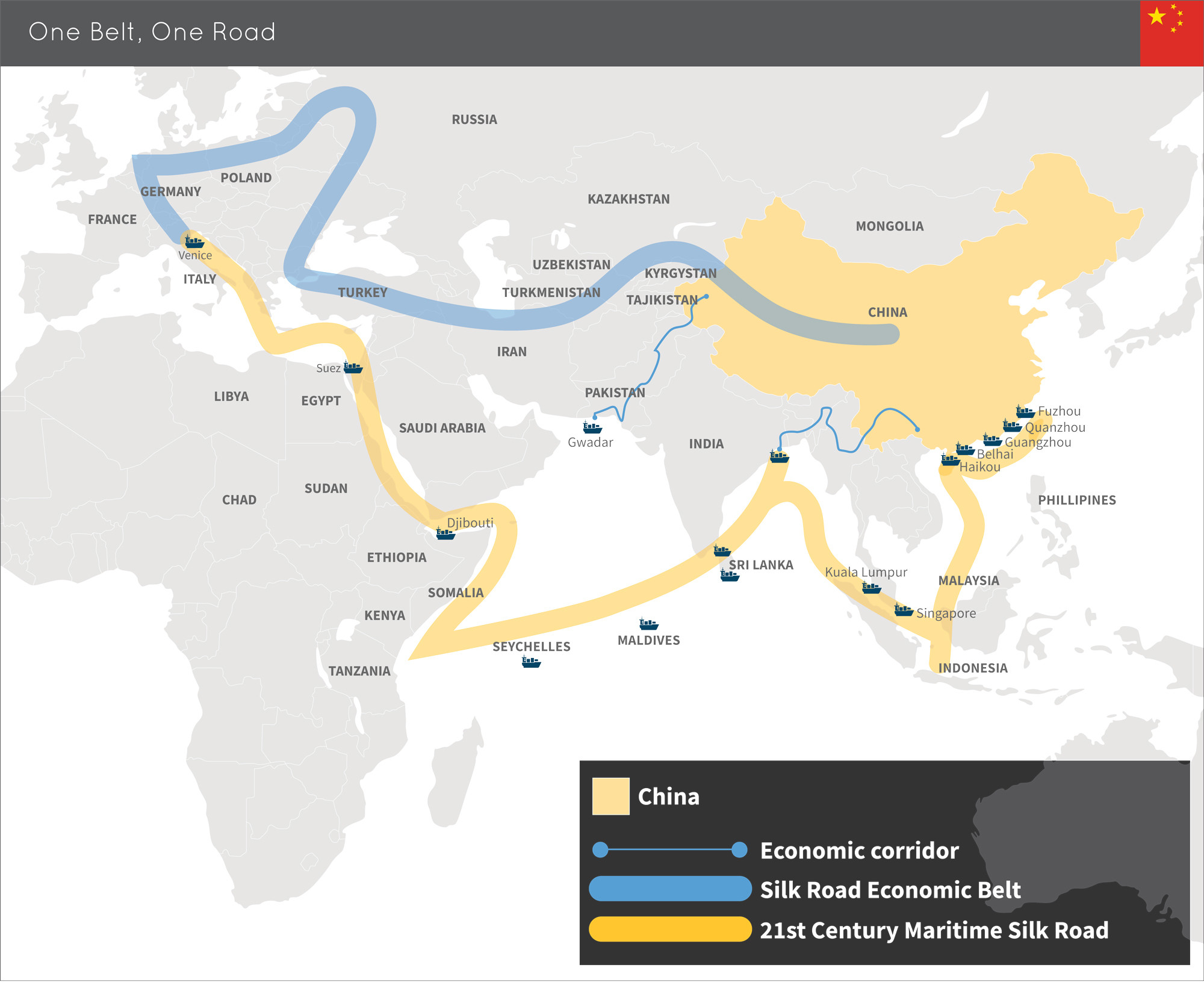Something Tells Us the China Trade Deal Will Not End Well
Mar 10 2019March 1 was to have been the deadline on which President Trump intended to raise tariffs on $200 billion of imports from China from 10% to 25% if a trade agreement were not reached. It hasn't and the deadline has been put off. Mr. Trump 
A recent Wall Street Journal article reports a wave of
farm bankruptcies to which the lost sales to China in
retaliation< for tariffs play the major role.
is claiming that the two sides are "very, very close" to a deal, but more truthful accounts say that there are intractable issues.
Trump had already put off the meeting with China's President Xi Jinping that was to have taken place before the deadline, and is now proclaiming that there will be a "signing summit" with Mr. Xi on a date not yet specified. The concern is that after months of hard-nosed negotiating by the U.S. Trade Representative, Robert Lighthizer, the president, who has made friendship the priority with Mr. Xi, might be easily swayed by the Chinese strongman and give away too much. "I find China, frankly, in many ways to be far more honorable" than the Democrats blocking his wall, he said on the way to his helicopter days ago. In a one-on-one meeting that he might undercut whatever gains have been achieved in negotiations is the worry. "This president wants a deal", said Kellyanne Conway.
Trump is fixated on the trade deficit and has repeatedly signaled that his priority is for China to buy more goods from the U.S. Far more important than selling more commodities to China is forcing an end to their mercantilist practices that favor their own industries and economy to the disadvantage of its trading partners. Since admittance to the World Trade Organization (WTO), China has never played by the rules. The government favors state-controlled companies to create global "champions", gives others an unfair advantage with subsidies to cut prices below world markets, restricts imports forcing its companies to buy Chinese goods, harasses foreign companies with inspections to which its own companies are not subjected, forces foreign companies to divulge trade secrets as the price of entry to the Chinese market.
job #1The first priority of any trade agreement is not Trump's "buy American", it is to end China's practice of coercing American companies to hand over trade secrets in return for permission to operate in the Chinese market. Salivating for short term profit at the expense of their and America's future, U.S. multinationals have disgracefully caved in to China's demands over the last two decades. In the talks so far, ending this practice has been — incredibly — a sticking point: China's audacity that it is somehow owed to them that foreign companies should hand over technologies and trade secrets that have cost those industries billions to achieve.
In his zeal simply to reduce the annual deficit by selling more, President Trump seems to have directed his negotiators to barely bring up the fact that China goes on barring entry of a number of industry categories into its market. China has benefited from its low labor costs by manufacturing and exporting an avalanche of goods. But China has not allowed the United States to benefit from industries at which it excels and is internationally competitive: financial services, insurance, telecommunications, engineering, architecture, consulting, software and so on, have all been denied entry into China.
Beijing blocks or censors Facebook, Google search, and YouTube. It has stiff-armed credit card companies from starting payment processing operations in China for the entire period they have been in the WTO. In 2001 they agreed to let banks operate in the country, but then set such stringent rules that the banks could not operate. Seventeen years on, China has not given an inch of access to the U.S. telecom industry. That we have tolerated this imbalance for so long is appalling and speaks of the incompetence of our governments of both parties.
Neither has China yielded to conform to world trade rules against subsidizing companies to make them more competitive in world markets. China hasn't budged in the negotiations because that would slow the "Made in China 2025" campaign of support for favored industries, never mind that it violates WTO rules. If that policy stays in place, so should tariffs, or the permanent blocking of imports from those favored industries. We have no interest in assisting Mr. Xi's grandiose "Made in China 2025" campaign which is intended to take the global lead in the 10 most important high-tech fields of the future while making his nation maximally self-reliant on its own output. In a speech Vice President Pence sounded a long overdue alarm:
"Through its Made in China policy, the Communist Party has set its sights on controlling 90% of the world's most advanced industries…Beijing has directed its bureaucrats and businesses to obtain American technology…by any means necessary".
China is spending trillions on One Belt One Road, the biggest infrastructure project the world has seen, stretching its tentacles by land and sea to the
The One Belt, One Road planned routes
west coast of Europe. Needing nothing from the world other than fossil fuels, China will import the minimum; it will sell its output to the world, beggaring the economies of client nations. The ultimate mercantilist dream is in sight, the restoration of the Chinese Empire.
The problem with any deal with China is enforcement. We will presumably extract yet another promise not to steal intellectual property, as agreed between Presidents Obama and Xi, but violated again along with the resumption of cyber-theft in retaliation for Trump's tariffs. China keeps its pledges vague; its promises have a history of eroding, thefts of intellectual property being one example. Beijing has staged sporadic "crackdowns" only when prodded by the U.S. China is a nation of cheats with none of the West's mores. The U.S. will need to exercise unending vigilance to hold China to its agreements.
As enforcement mechanisms U.S. officials have been pressing for a provision to reduce the tariffs gradually — only as China meets certain milestones. Either that or a "snapback" feature that triggers reinstatement of tariffs should China fail at some point to honor its commitments. Beijing strongly resists both ideas, which is telling. Why are they concerned about either if they intend to live up to the deal?
not tough enoughThe WTO rule says a country cannot require foreign firms to share their technology as a condition of conducting business in that country, a rule that Beijing has thumbed its nose at from the moment China was accepted into the WTO. The question is: Why has our government not taken direct action against this extortion? Last March the U.S. filed a thoroughly investigated complaint with the WTO documenting technology transfer extortion. China objected. They say that American companies want to do business in China with their assigned Chinese partners, so they volunteer to share their proprietary knowledge, a ludicrous claim that qualifies as the best piece of evidence that China lies to the point of insult. The WTO took no action.
The WTO has become useless and the U.S. cannot afford to any longer bother to apply to it for relief. Better that the Trump administration enforce the WTO rule on its own, issuing an outright prohibition by executive order that forbids American companies on penalty of major fines from sharing technology with the joint venture partners China has thrust upon them. If that results in China disallowing our companies from doing business in their country, then up go retaliatory tariffs. The Trump administration should then move to make the prohibition U.S. law. The Foreign Corrupt Practices Act, which already has the mechanisms in place for penalizing violators, lends itself for a speedy amendment that perfectly fits the rest of the Act.
So why has this never even been proposed? One can only assume that the Republican-controlled Senate (and House until last November) wouldn't think of having Congress put the big multinational corporations' profitable Chinese operations at risk, with the fallout of endangering contributions to their campaigns.
Trump had the Department of Agriculture pledge $12 billion in aid to "make it up" to farmers, an amount that in no way compensates for losses. With exports cut by the tariff war, this subsidy is spread over farms producing everything from soy beans to hogs, from apples to dairy products. By November only $838 million had been issued. The Wall Street Journal reports that a wave of bankruptcies have struck farm country.
That puts increasing pressure on Trump to sign off on a deal that requires China to buy more agricultural products from America, which will be a major triumph for China. If all a trade deal does is sell more pork and beans to China, if it does not effect drastic change in China's coercive appropriation and outright cyber-theft of American industry's intellectual property, if it does not open wide access to China for our service industries, if it does not block the import of goods made by government subsidized companies, then it will be a trade deal that has accomplished nothing.
Please subscribe if you haven't, or post a comment below about this article, or
click here to go to our front page.

